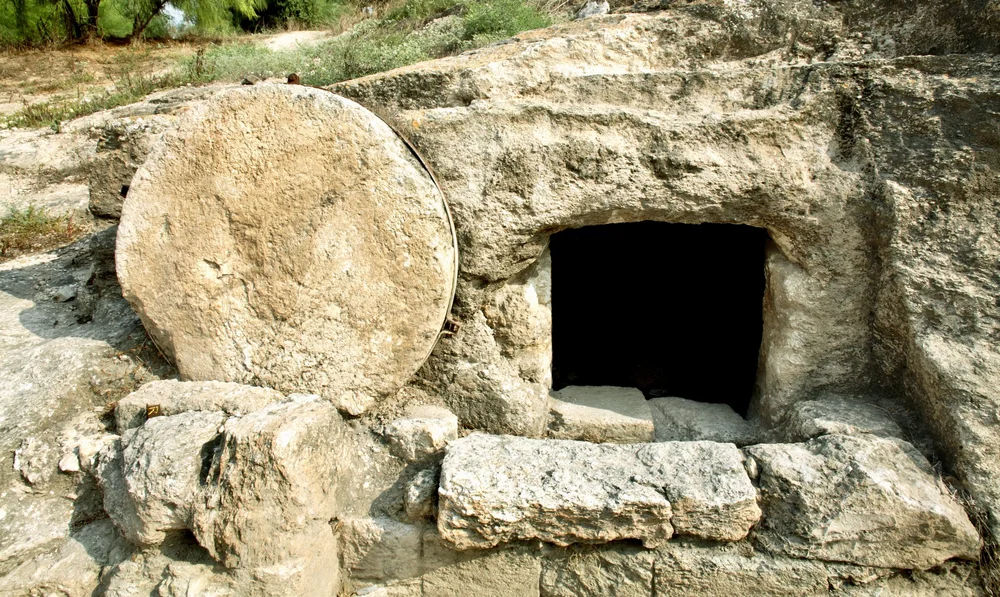
Photo by Keyur Nandaniya on Unsplash
Disclosure: This post may contain affiliate links, meaning Beautiful Christian Life LLC may get a commission if you decide to make a purchase through its links, at no cost to you.
But solid food is for the mature, for those who have their powers of discernment trained by constant practice to distinguish good from evil. (Heb. 5:14)
The devil hates God and he also hates God's children and wants to destroy them. In 2 Corinthians 11, the apostle Paul writes about how "the serpent deceived Eve by his cunning" (v. 3) and that "Satan disguises himself as an angel of light" (v. 14). Jesus tell us that the devil "'is a liar and the father of all lies'" (John 8:44). Satan is our adversary, and he "prowls around like a roaring lion, seeking someone to devour" (1 Pet. 5:8).
The Bible teaches us about Satan’s schemes so that God's children won't be naive, easily taken captive by his lies. Here are four strategies the devil uses to wreak havoc in the lives of believers:
1. The devil tries to twist God's word.
Twisting God's word is one of the ways Satan uses to attack Christians. In Jesus' encounter with Satan in the wilderness in Matthew 4:1-11, the devil cites Psalm 91:11–12 to entice Jesus to jump off the roof of the temple to test God's love for his Son:
Then the devil took him to the holy city and set him on the pinnacle of the temple and said to him, "If you are the Son of God, throw yourself down, for it is written, "'He will command his angels concerning you,’" and "'On their hands they will bear you up, lest you strike your foot against a stone.'"
Jesus answers Satan right back with Scripture:
"Again it is written, 'You shall not put the Lord your God to the test.'" (Matt. 4:7; see also Deut. 6:16)
The devil also twisted God's words when he tempted Eve in the garden of Eden (Gen. 3:1-5), and Adam and Eve chose to eat the forbidden fruit against God's clear command in Genesis 2:16-17. The result of this terrible rebellion was the fall of humanity from a right standing with God and a wretched curse upon the world.
Whether the twisting of God's word has to do with how we are to comport ourselves in intimate relationships, the spending our financial resources, our duties in church attendance, or our treatment of others, most of us have been told at some point by someone that the Bible doesn't really mean what it clearly states to be true; and we can be easily tempted to go along with this twisting, because believing the spinning of truth helps us justify the self-focused things we want to do instead of putting God first and obeying him.
Christians need to be equipped with God's word like Jesus was, so they can stand strong against the devil. Yet, knowing Scripture is not enough; Christians also need to know how to interpret Bible verses in their proper context to employ them effectively against all the devil's devices and avoid being deceived.
2. The devil schemes against God's children by attempting to distract them.
Following Jesus includes not committing sins, and it also includes doing what God commands us to do. In Ephesians 2:10 the apostle Paul writes,
For we are his workmanship, created in Christ Jesus for good works, which God prepared beforehand, that we should walk in them.
There are so many ways to be distracted from our duties: surfing the internet, watching TV, playing video games, and even sleeping are all things that aren't necessarily bad in themselves, but they can keep us from fulfilling our responsibilities. As Australian minister Campbell Markham points out:
But a young man who idles in front of a computer screen while a young family or an old couple struggles to maintain their garden is delinquent. For a young single man with strength in his arm and love in his heart can lift a mountain of burdens from the shoulders of his church family—and his own family. Why else did God bless you with those muscles and broad shoulders?
A young woman who whiles away her time in front of Netflix and Instagram while a mother with little ones struggles to wash her family's clothes should be ashamed. For a young single woman, having done her homework and household chores, can come with the wings of an angel to help a harassed young mom or a widow who now struggles to vacuum her carpets.
Resting and recreating are God's good gifts to us, but we must be wise in how we use the precious time God has given us on this earth. The devil wants us to neglect our responsibilities and image him instead of God.
3. As we fulfill our responsibilities, the devil tries to get us to worship the creation rather than the Creator.
Spouses are tempted to make idols of their husband or wife; parents are tempted to make idols of their children; workers are tempted to make idols of success and acclaim; and human beings are tempted to make idols of themselves.
The temptation to worship other people, the success of our children or ourselves, or something about ourselves about which we are proud is a daily struggle for God's children. Physical beauty, educational accomplishments, financial success, and humanitarian acts are all gifts from God, but they can be used by the devil to take our eyes off the sufficiency of Christ in all things—to get us to trust in our own attributes, accomplishments, and possessions instead of Christ alone.
4. The devil wants us to be paralyzed by fear, uncertainty, and doubt.
Fear, uncertainty, doubt—turn on the news or go online anytime and you will get a flood of anxiety-producing information that will tempt you to take your eyes of God's provision in Christ. Christians don't have to fear God's just wrath because Jesus took the wrath they deserve upon himself on the cross, and believers have an eternal glorious future awaiting them with God and the saints. Christians don't have to be uncertain because they know from the Bible that God always keeps all his promises.
And Christians don't have to doubt God's word because it has stood the test of time, having been assaulted from all sides by the seemingly wise of this world and yet continuing to shine forth with the truth about God and his creation that we all need to hear. God desires his children to be filled not with fear but with the peace that comes from above (James 3:17)—the peace of God that guards our hearts and our minds in Christ Jesus (Phil. 4:7).
God has promised that nothing shall separate his children from his love.
It shouldn’t surprise us that the devil is so adept at lying, for Jesus warns us about this:
"You are of your father the devil, and your will is to do your father's desires. He was a murderer from the beginning, and does not stand in the truth, because there is no truth in him. When he lies, he speaks out of his own character, for he is a liar and the father of lies." (John 8:44)
God's word tells us that the day is coming when the devil will be thrown into the lake of fire and "tormented day and night forever and ever" (Rev. 20:10), but for now believers need to "be sober-minded; watchful” because the devil seeks to devour them (1 Pet. 5:8).
Continue to be steadfast in reading God's word, praying to your heavenly Father, attending a faithful church, and fellowshipping with the saints. God does not mean for us to fight against the devil in our own strength. He is always faithful and has promised that nothing "will be able to separate us from the love of God in Christ Jesus our Lord" (Rom. 8:39).
Related Articles:
-
"NUTS!" Why Christians Must Fight On Against the Devil’s Calls to Surrender — Revelation 22:12-21
-
All Sins Are Not Alike: Sexual Immorality, Chastity, and Wisdom
Le Ann Trees is managing editor of Beautiful Christian Life. This article is adapted from “4 Schemes the Devil Uses Against God’s Children” in BCL's October 2022 Newsletter: The Devil’s Schemes.
Recommended Book:
Overcoming Sin and Temptation by John Owen; edited by Kelly M. Kapic and Justin Taylor

from BLOG - Beautiful Christian Life https://ift.tt/YFlVLH8
via IFTTT





